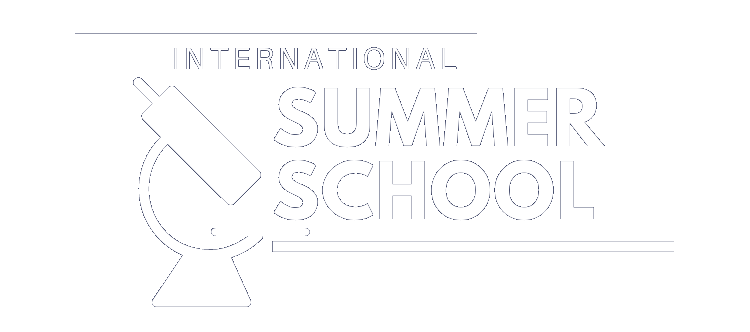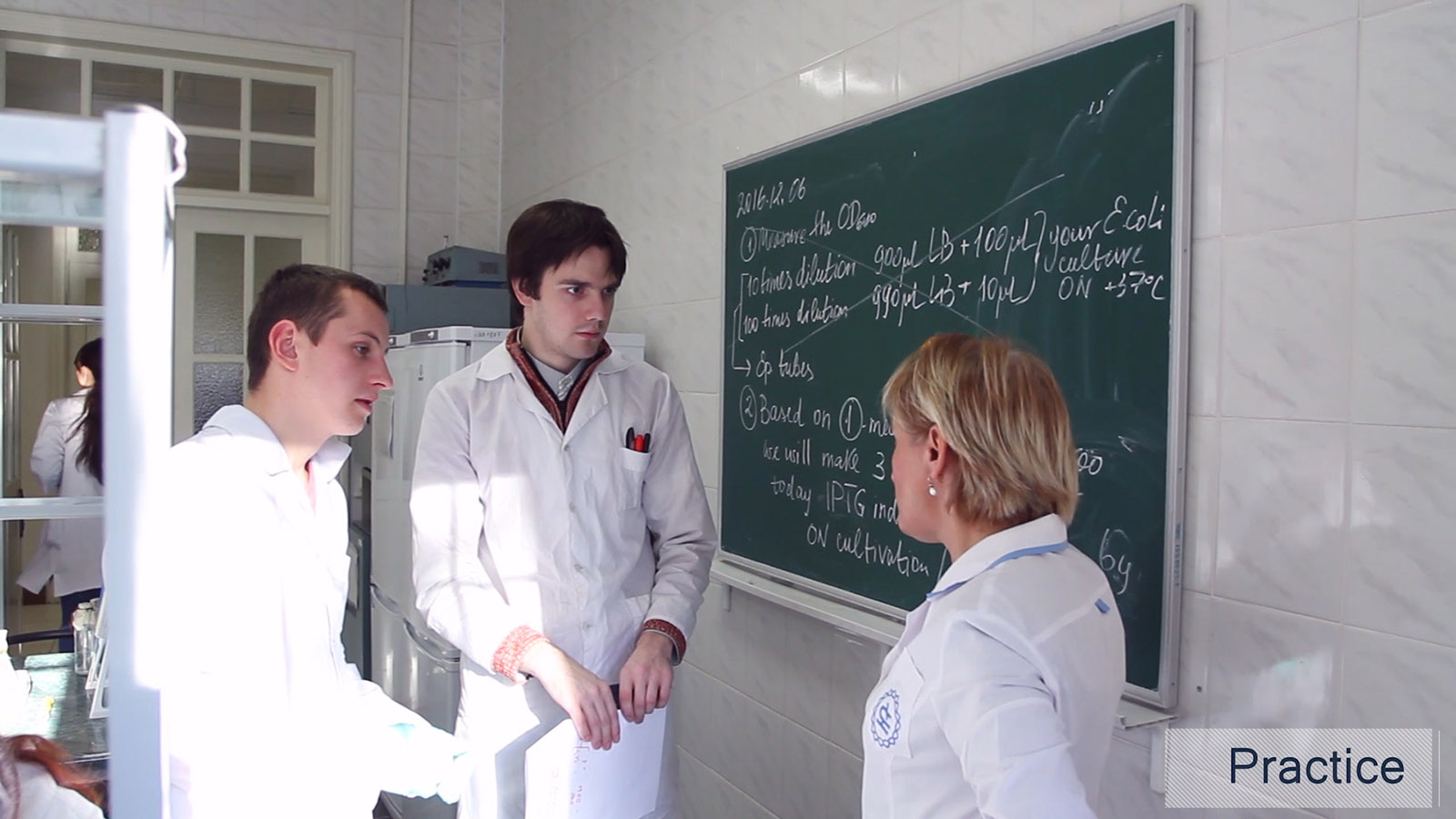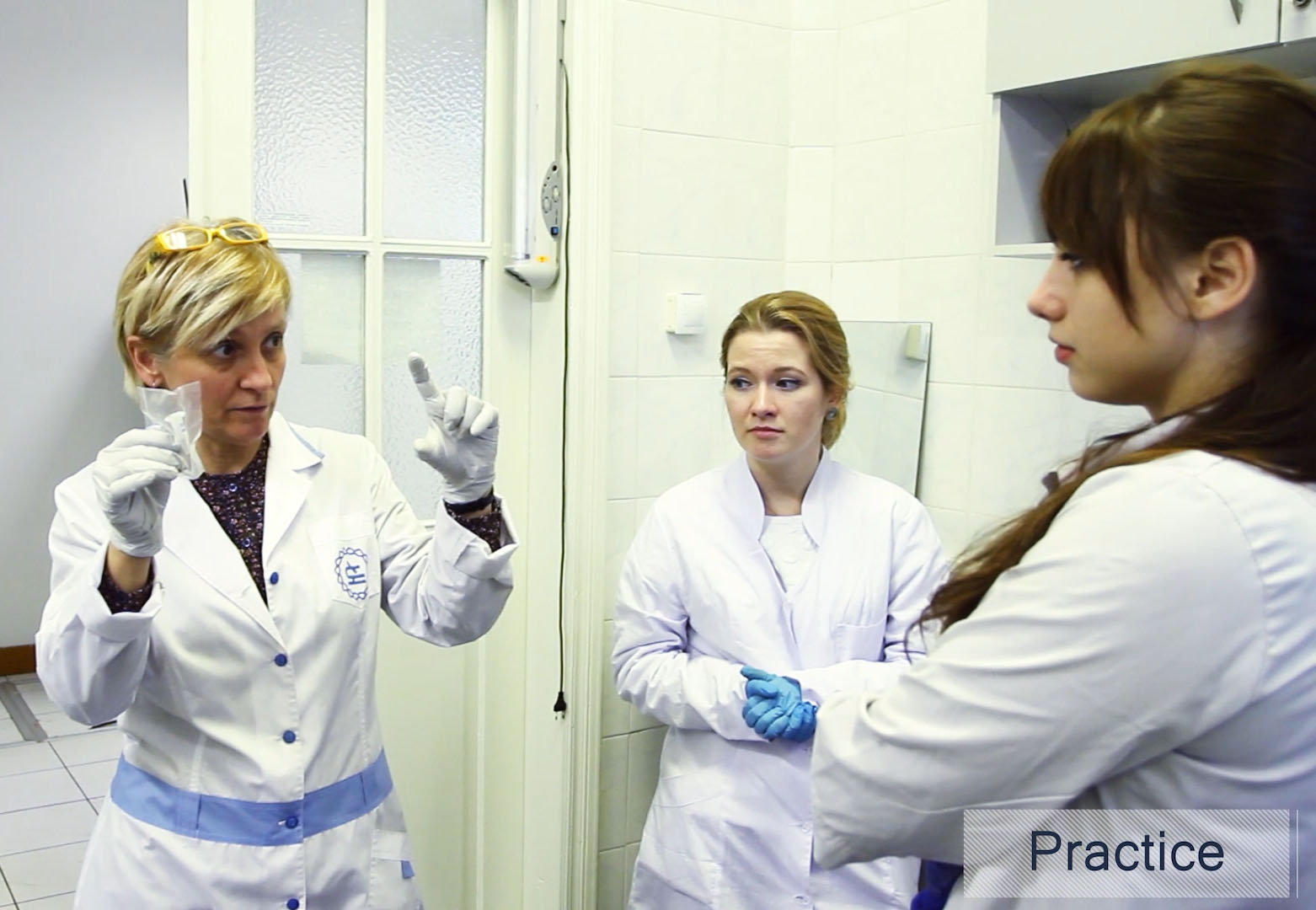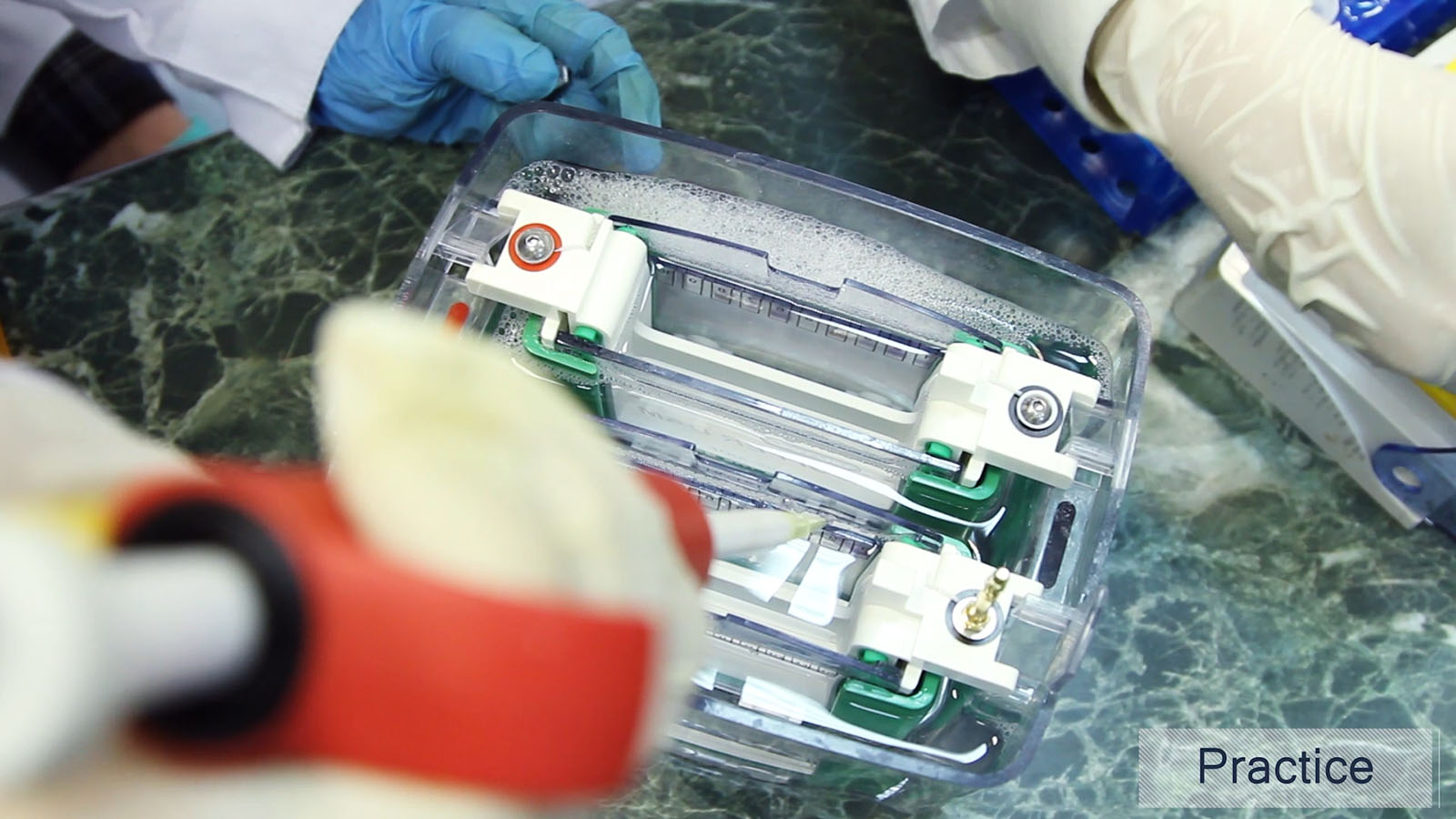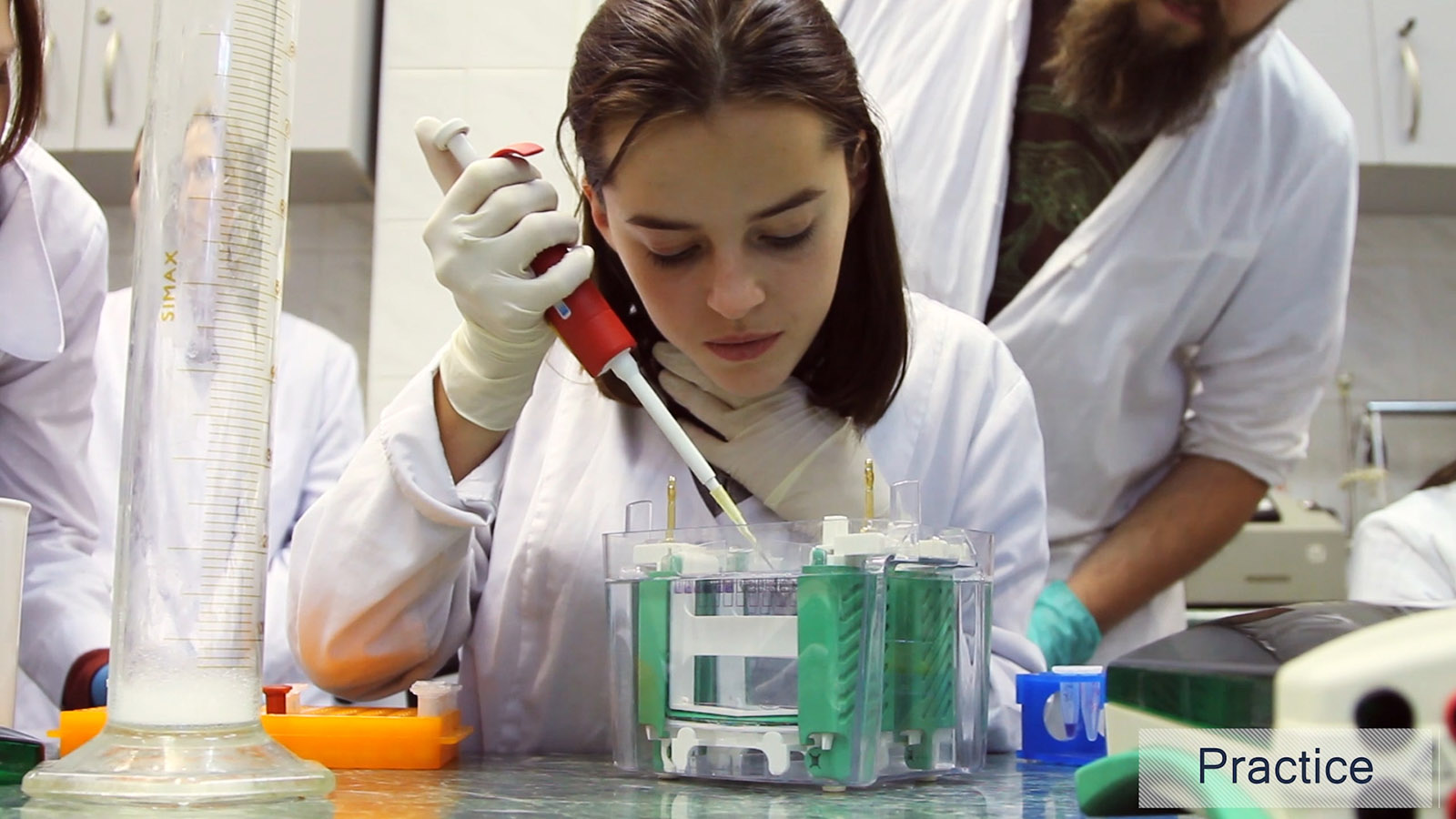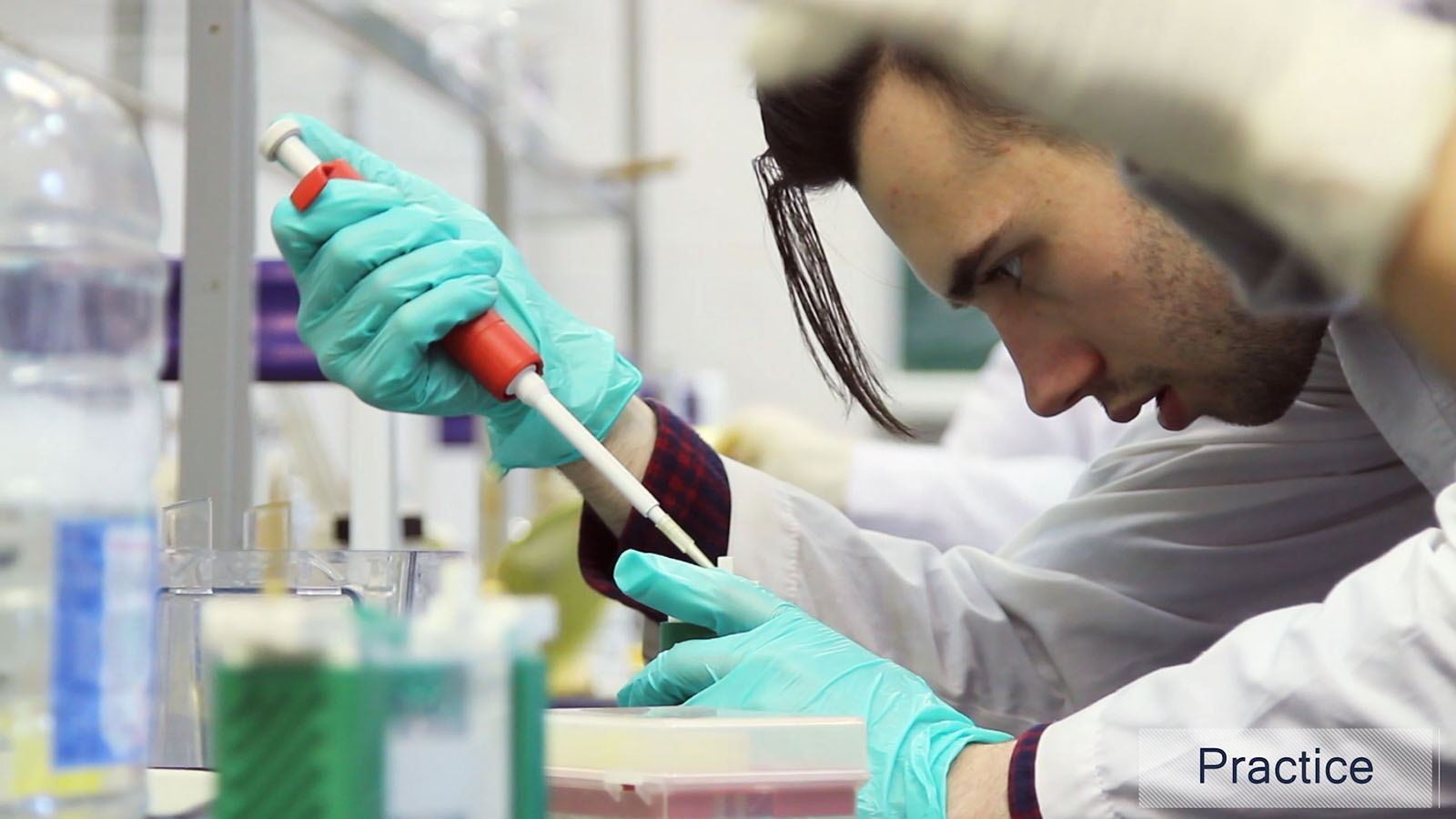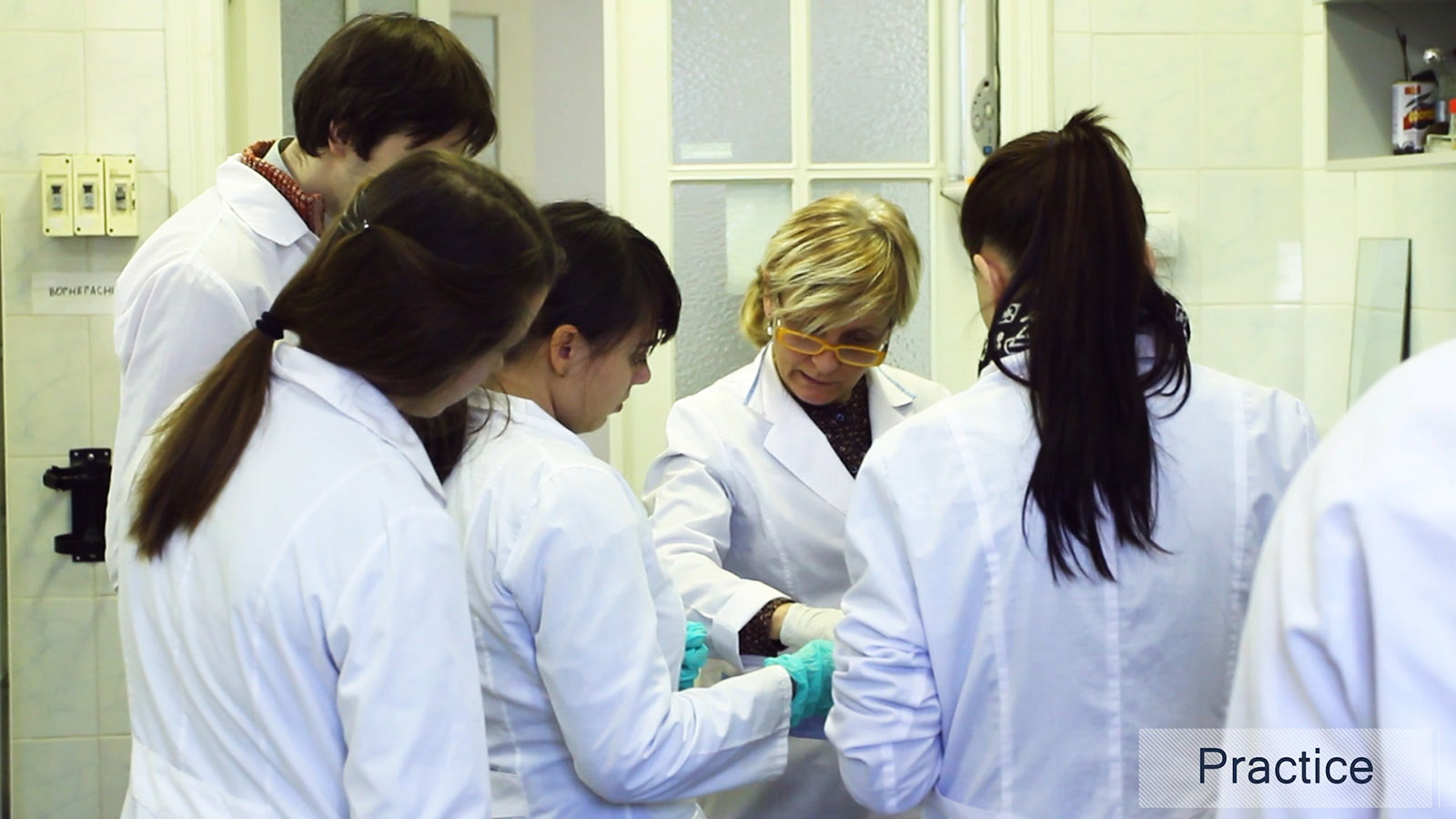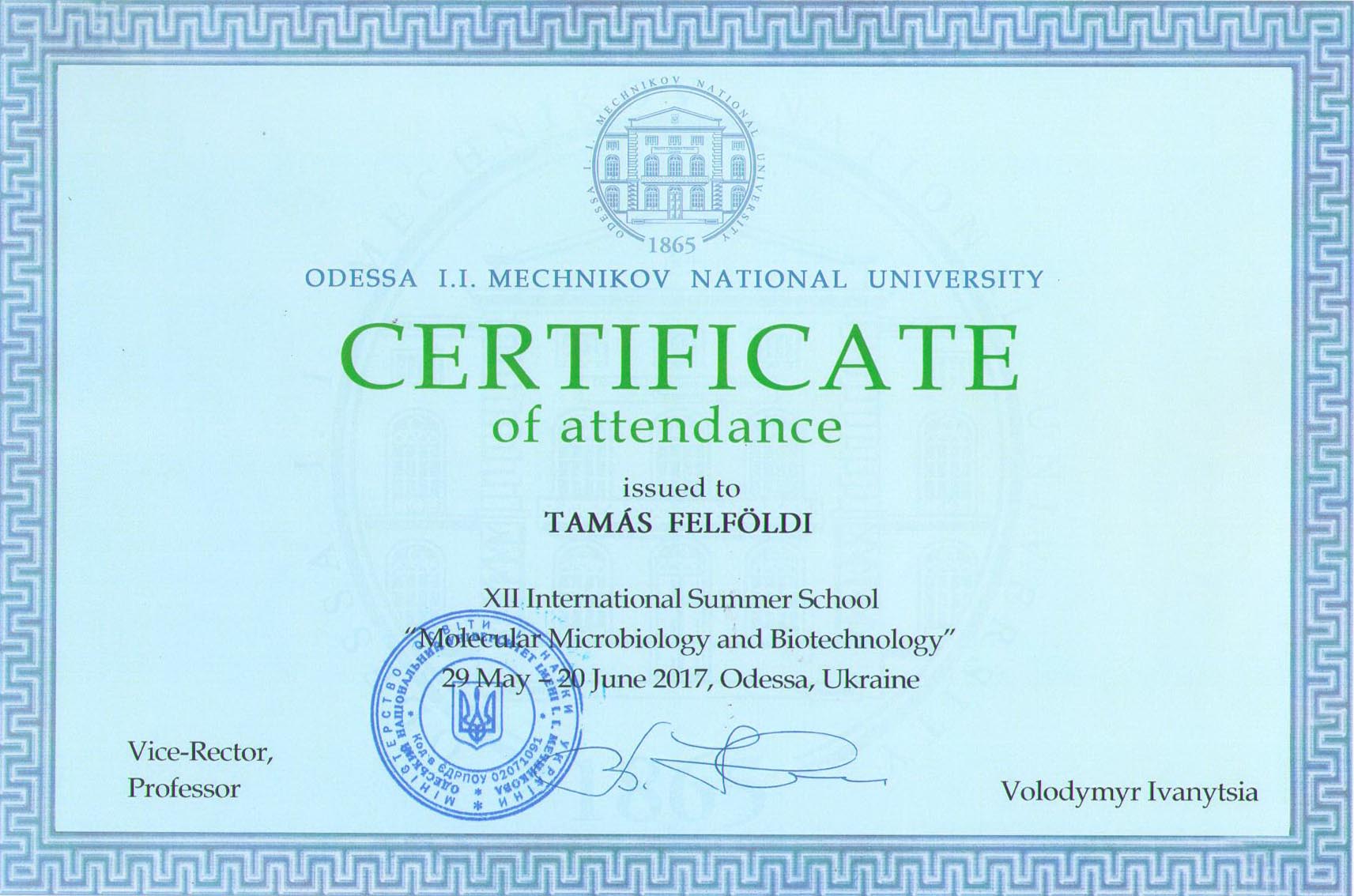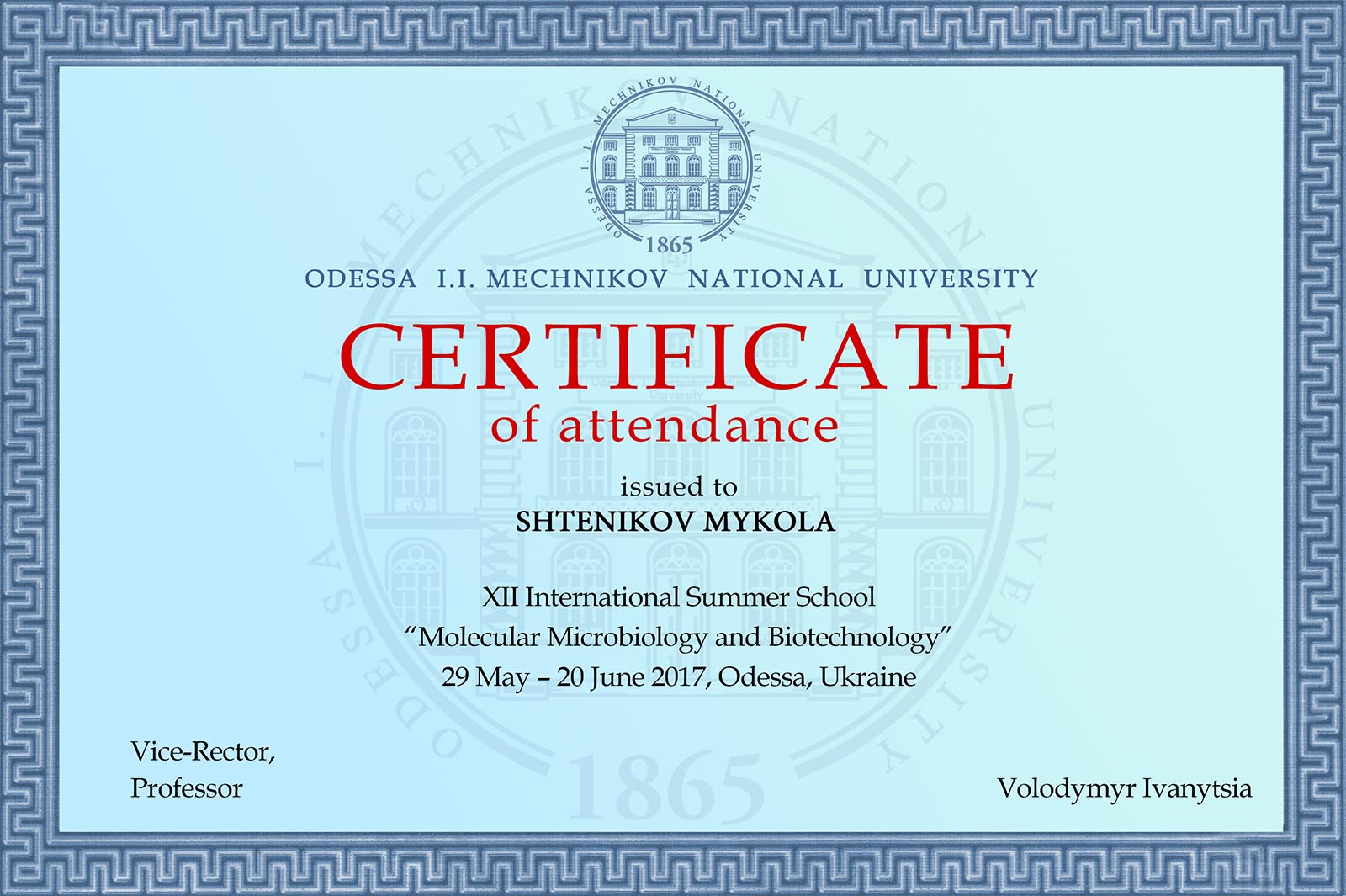XІІ INTERNATIONAL SUMMER SCHOOL-CONFERENCE «MOLECULAR MICROBIOLOGY AND BIOTECHNOLOGY»
May 29, Monday
9:00 - 13:00 Registration
14:00 - 14:30 Official opening
14:30-15:30 Volodymyr O. Ivanytsia. Lecture “Recent advances in biotechnology in Ukraine”
15:45-16:30 Nataliia Yu. Vasylieva. Lecture «The importance of bioinformatics for modern biology»
Example study 1: “Algal blooms and desiccation drives microbial community composition in alkaline soda pans”.
Example study 2: “Enhanced biodegradation of trichloroehylene in groundwater: Pilot-scale test”.
Practice work “Data analysis: major considerations in quality filtering, taxonomic identification of 16S rRNA gene amplicon reads, diversity indices and richness estimators, linking taxonomic data with environmental variables, functional community profiling based on shotgun metagenomic data, 16S rRNA gene and metagenomic databases”. “Introduction to aquatic microbial ecology (diversity, activity and interactions). Habitats (marine, freshwater, saline lakes, etc.). Next generation DNA sequencing technologies. Community profiling, exploring uncultultivated prokaryotes, single cell genomics, shotgun metagenomics, environmental genomics”.
13:00-14:00 Lunch
May 31, Wednesday
10.00 - 17:00 Nataliia Yu. Vasylieva. Practice work “Introducing in R. Base operations in R for biological and bioinformatics investigations”.
13:00-14:00 Lunch
June 1, Thursday
10.00 - 17:00 Nataliia Yu. Vasylieva Lecture “Cluster Analysis. Concept, methods and algorithms of cluster analysis. Algorithms of calculation in cluster analysis that are used in biology. Criteria of classification quality”. Practice work. “Cluster analysis in R”
13:00-14:00 Lunch
June 2, Friday
10:00-17:00 Nataliia Yu. Vasylieva Practice work “Matlab as powerful tool for biological and bioinformatics investigations”
13:00-14:00 Lunch
June 5, Monday
10:00 - 17:00 Pavlo A. Karpov. Lecture and Practice work
Part 1 “Concepts, historical milestones and place of bioinformatics in modern biology. The role, methods and application of in silico research. Bioinformatics prospects. The Protein Information Resource (PIR). The National Center for Biotechnology Information (NCBI). Structure of NCBI: Literature, Health, Genomes, Genes, Proteins і Chemicals. Databases: primary (GenBank), secondary (UniProtKB) and specialized databases. Entrez. Working with Whole Genome Data. MapViewer.”
Part 2 “Definition of homolog, ortholog and paralog. IUPAC. Analysis of biological text. Nucleotide and protein sequences formats. Sequences and structure homology, conservatism, similarity and identity. Motive, Log and Pattern analyses. Application of substitution symbols. Database scanning”.
13:00-14:00 Lunch
June 6, Tuesday
9:00 - 10:30 Thomas Haertlé. Lecture “Harnessing of lactic acid bacteria for the reduction of immunogenicities”.
10:45 - 17:00 Pavlo A. Karpov. Lecture and Practice work
Part 1 “Natural nucleic acids - DNA and RNA, and their role in replication and expression of genetic information. The structure of DNA. The most important properties of the genetic code, triplet codon, commaless genetic code, discreteness, specificity, degeneracy of genetic code, collinearity, terminal codons, versatility, etc. Pro- and eukaryote genes. Features of RNA deposition (bioinformatic point of view)”.
Part 2 “The levels of protein organization. Key features of protein structure. The primary structure. Secondary structure: α-helix and β-layers. Protein folding and tertiary structure. Local tools and network services for prediction of protein secondary structure elements.
13:00-14:00 Lunch
June 7, Wednesday
10:00- 17:00 Pavlo A. Karpov. Lecture and Practice work
Part 1 “Sequence comparison and alignment. Methods of comparison in molecular biology. Sequence weighing matrices and their applications. Local and global sequence alignment. Pairwise and multiple alignments. Profile alignment. Align of protein 3D-structures. Biopolymers clustering. The logic behind phylogenetic trees. Biological and mathematical components of phylogeny. Basic terms. Cladistic analysis. Phylogenetic analysis and topology of tree. The NJ and UPGMA methods. On-line servers and local tools of phylogenetic analysis”.
Part 2 “Concept of the protein domain. Domain structure and architecture. In silico approaches to predict domain architecture. On-line tools: SMART, Pfam, PROSITE. HMM (Hidden Markov Model’s). Comparison and alignment of proteins structure. Identification of protein function based on its domain structure and composition”.
13:00-14:00 Lunch
June 8, Thursday
10:00 - 17:00 Pavlo A. Karpov. Lecture and Practice
Part 1 “Protein Data Bank. History, specialization, format of PDB-records and tools. The structure of *.pdb file. Structural databases. Visualization of biomolecular structures – styles of representation. Line, stick, ribbon and cartoon representations. Visualization of molecular surfaces. Local and network software for visualization of molecular models”.
Part 2 “The reconstruction of macromolecules structure in silico. Methods of protein spatial structure modelling. Homology modeling. Relation between sequence and spatial structure of the protein. Local and On-line tools of 3D-structure modeling”.
13:00-14:00 Lunch
June 9, Friday
9:00 - 10:30 Stepanova Yu. Tetyana. Lecture. “Biological weapons as weapons of terror: perspectives in the threat”
10:45 - 17:00 Pavlo A. Karpov. Lecture and Practice
Part 1 “Libraries of low-molecular compounds (ligands). PubChem, UCSF ZINC, RCSB PDB Ligands (Ligand Expo), KEGG LIGAND, BindingDB. *.MOL (Molfile) / *.SD (Structure-Data) and Tripos Mol2 (*.mol2) files. Notepad++ etc. De novo modeling of ligands. Virtual libraries of ligands. Selection criteria for drug-like compounds: rule-of-five, etc. Conformational mobility and stereoisomers of ligands”.
Part 2 “Libraries of molecular targets, ligands and ligand-protein complexes as a basis for the rational drag-design, molecular docking, virtual screening, QSAR, and etc”.
13:00-14:00 Lunch
June 12, Monday
9:45 - 11:15 Fedir I. Tovkach. Lecture
“Molecular genetics and molecular microbiology. Modern concepts in molecular microbiology. Biological metronome. Modern classification of pro- and eukaryotic microorganisms and viruses. Domains of life. Primary sequence of genomes. Bacterial genomics. The topology of entire bacterial genomes. Clusters of ortologic genes. The meaning of “ smallest genome”.
11:30 - 13:00 Hans Binder. Lecture “Challenges in bioinformatics”
13:00-14:00 Lunch
14:00-15:30 Tetiana Yevsa. Lecture
“Perspectives of cancer vaccines and immunotherapy in gastrointestinal malignant diseases”.
15:45-17:15 Yuliya Sytnikova. Lecture
“Current frontiers of epigenetic regulation”. Skype report
June 13, Tuesday
9:45 - 11:15 Fedir I. Tovkach. Lecture
“Genomic of prophages and pathogenicity islands. Phage lysogenic conversion. Phage toxins. The concept of "morons". Islands of pathogenicity and secretion system type III”.
11:30- 13:00 Hans Binder. Lecture “Cancer Bioinformatics”.
13:00-14:00 Lunch
14:00-15:30 Oksana Yurchenko. Lecture “Sequence as method of studying viruses”.
15:45-17:15 Yuliya Sytnikova. Lecture
“Current frontiers of epigenetic regulation 2”. Skype report
June 14, Wednesday
9:45 - 11:15 Fedir I Tovkach. Lecture
“Genomic of the plasmids. Plasmid determinants of pathogenicity. Plasmid-based vectors.. Molecular genetic of plasmid pTi – С58 Agrobacterium tumеfaciens. Transgenic plants”.
11:30-13:00 Hans Binder. Lecture “Making maps of the OMES”.
13:00-14:00 Lunch
14:00-15:30 Nataliia Vasylieva. Practice “Phylogenetic analysis. MatLab, MEGA, R”.
June 15, Thursday
9:00 - 10:30 Fedir I. Tovkach Lecture
“ Bacterial transposons, IS elements, integrons and genetic cassettes. The mechanism of formation the multiple antibiotic resistance in bacteria. The concept of inside genome rebuilding - genomic engineering. Defective bacteriophages and bacteriocins. Role in interbacterial antagonism”.
10:45-12:15 Oleksandr I. Korneliuk. Lecture “Computer biology and bioinformatics in the post genomic era”.
13:00-14:00 Lunch
14:00-17:00 Oleksandr V. Savytskyi. Practice “Useful cases in molecular modeling of biopolymers and their structural complexes”. “High-Performance Computing and molecular dynamics simulations of proteins”.
June 16, Friday
9:00-10:00 Fedir I. Tovkach Lecture
“Autonomic genetic elements of bacteria. Insertion sequences, transposons, restriction-modification system, plasmids, bacteriophages, pathogenicity island. The hierarchy of mobility and autonomous genetic elements. The role of autonomous genetic elements in the formation of pathogenic bacteria”.
10:10- 11:40 Oleksandr I. Korneliuk. Lecture “Computer grid technologies and their applications in molecular biology”.
11:45-13:00 Andriy Luzhetskyy. Lecture ”Actinobacteria biosynthetic potential: bridging in silico and in vivo“.
13:00-14:00 Lunch
14:00-17:00 Oleksandr V. Savytskyi. Practice “Grid computing and infrastructures for biomolecular research"
“Virtual Laboratory MolDynGrid as efficient infrastructure for automation of molecular dynamics simulations (moldyngrid.org)”.
June 19, Monday
9:00 - 11:30 Anders Sjöstedt, Lecture “Clinically relevant bacteria”.
11:45-13:00 Olena Rzhepishevska. Lecture
“Omics approach in clinical research: Tuberculosis epidemiology in Odessa region; application of genomics; Metabolomics for diagnostic and treatment evaluation of infectious disease”.
13:00-14:00 Lunch
14:00-18:00 Olena Rakhimova. Lecture
“Quality in Science: Quality assurance; Stock in the lab; Laboratory Notebook; Reproducibility; P value. Antibodies in biological experiments. Data fraud; Phenomenon of Paolo Macchiarini. Journal Club, presentations by students. Gene cloning lab”.
June 20, Tuesday
9:00 – 11:30 Anders Sjöstedt, Olena Rzhepishevska “Microbiological diagnostic methods”.
11:45 – 13:00 Olena Rzhepishevska “Clinical aspects of bacterial biofilms: Biofilms of Gram positive bacteria; Biofilms of Gram negative bacteria”
13:00-14:00 Lunch
14:00-15:15 Jaroslav B. Blume. Lecture “New inhibitors of mycobacterial ftsz proteins: the way from high-throughput molecular screening up to in vitro verification”.
15:30-17:00 Mykola V. Patyka. Lecture "Methagenom of soil- diversity, structure, function"
17:00 Closing of XІІ International Summer School
за тематичним напрямом «Біоінформатика»
З 29 травня по 23 червня 2017 року на кафедрі мікробіології, вірусології та біотехнології Одеського національного університету імені І.І. Мечникова спільно з Інститутом мікробіології і вірусології імені Д.К. Заболотного НАН України, за підтримки Товариства мікробіологів України імені С.М. Виноградського та Спілки біологів і біотехнологів Одеси проходила ХІІ Міжнародна Літня школа-конференція «Молекулярна мікробіологія і біотехнологія» за основним тематичним напрямом Біоінформатика.
Серед слухачів Літньої школи-конференції були молоді вчені та аспіранти з університетів та наукових закладів України (Одеський національний університет імені І.І. Мечникова, Київський національний університет імені Тараса Шевченко, Інститут мікробіології та вірусології ім. Д.К. Заболотного НАН України, Національний технічний університет України «Київський політехнічний інститут імені Ігоря Сікорського», Науково-дослідний Інститут біології Харківський національний університет імені В.Н. Каразина, Інститут розведення і генетики тварин імені М.В. Зубця НААН, Селекційно-генетичний інститут – Національний центр насіннєзнавства та сортовивчення м. Одеса.
У роботі школи як лектори брали участь заступник директора ІМВ НАНУ завідувач відділом молекулярної генетики бактеріофагів, д.б.н. Товкач Федір Іванович, д.б.н., професор, академік НАНУ, директор Інституту харчової біотехнології та геноміки НАНУ Блюм Ярослав Борисович, д.б.н., професор, член-кор. НАНУ, завідувач відділу білкової інженерії та біоінформатики Інституту молекулярної біології і генетики НАНУ, завідувач кафедри молекулярної біотехнології та біоінформатики Київського національного університету імені Тараса Шевченка Корнелюк Олександр Іванович, д.с.х.н., академік Академії наук вищої школи України, завідувач кафедри молекулярної біології, мікробіології та біобезпеки Національного університету біоресурсів і природокористування України Патика Микола Володимирович, к.б.н., с.н.с., зав. лабораторією біоінформатики та структурної біології Інституту харчової біотехнології та геноміки НАНУ Карпов Павло Андрійович, к.б.н. науковий співробітник Інституту молекулярної біології та генетики НАНУ Савицький Олександр Вячеславович, науковий співробітник лабораторії індикації особливо небезпечних біологічних патогенних агентів Державної установи Українського науково-дослідного протичумного інституту к.б.н. Юрченко Оксана Олександрівна, ст.н.с. Інституту біохімії ім. О.В. Паладіна НАН України, секретар Української асоціації біобезпеки (УАБ), к.б.н. Гергалова Галина Леонідівна, доцент кафедри мікробіології, вірусології та біотехнології ОНУ імені І.І. Мечникова к.б.н. Васильєва Наталія Юріївна, співробітники Будапештського університету Томаш Фелфолді, Ксаба Ромасікс, Аттіла Сзабо (Угорщина), співробітник Національного інституту агрономічних досліджень проф. Томас Хертле (Нант, Франція), голова міждисциплінарного центру Біоінформатики Лейпцігського університету Ханс Біндер (Німеччина), співробітник відділення гастроентерології, гематології та ендокринології Ганноверської медичної школи Євса Тетяна (Німеччина), керівник дослідницької групи в Інституті фармацевтичних досліджень Гельмгольца в Саарланд (HIPS) Андрій Лужицький (Німеччина), проф., головний лікар Департаменту клінічної мікробіології, начальник відділу клінічної бактеріології Андерш Шёстедт (Умеа, Швеція), співробітники кафедри медичної хімії та біофізики університету Умеа Олена Рахімова і Олена Ржепішевська (Швеція), співробітник Гарвардської медичної школи та жіночої лікарні Бостона Юлія Ситникова (США).
Лекційний курс ХІІ Літньої школи з молекулярної мікробіології і біотехнології висвітлював питання бактеріальної геноміки, геноміки бактеріофагів і островів патогенності, геноміки плазмід, сучасного погляду на еволюцію мікроорганізмів, науковим концепціям в молекулярній мікробіології, бактеріальним транспозонам, ІS-елементам, інтегронам і генетичним касетам. Велика частина лекційного часу була присвячена питанням біоінформатики і її застосуванню у сучасної біології. Висвітлено вивчання некультивованих мікроорганізмів методами біоінформатики, геноміки одиночних клітин, екологічної геноміки, методам секвинування нового покоління.
Значна частина часу присвячена особливостям досліджень in silico та взаємодії біоінформатики з іншими галузями, специфічності генетичного коду та сучасним методам його налізу; методам вирівнювання послідовностей, використанню методів кластерного аналізу для вирішення біологічних завдань, фолдінгу білків, аналізу тривимірних структур та ідентифікації функцій білка на підставі структури і доменного складу. Додатково були розглянуті питання пов’язані з використанням бібліотек низькомолекулярних хімічних сполук: PubChem, ZINC, RCSB PDB Ligands (Ligand Expo), KEGG LIGAND, BindingDB; бібліотеки макромолекулярних мішеней, лігандів і ліганд-білкових комплексів, як основи раціонального драг-дізайну, молекулярного докінгу та високопропускного віртуального скринінгу.
Висвітлено питання застосування сучасних методів біоінформатики для визначення раку на перших етапах захворювання та створення нових підходів для боротьби з цим захворюванням. Продемонстровано сучасні методи застосуванням hot maps для аналізу сиквенованих масивів даних.
На прикладі грід-технологій показано необхідність інтеграції комп'ютерних знань і навичок в біології, пов'язаних з розвитком напрямку постгеномної біоінформатики.
На практичних заняттях учасники отримали навички програмування в програмах R та MatLab, вирішували завдання пов’язані з використанням кластерного аналізу, філогенетичного аналізу, побудови філогенетичних дерев, опанували роботу з біологічними базами даних – GenBank, UniProt, PDB та інші. Отримали навички роботи з доменами: прогноз доменної архітектури in silico; інструменти SMART, Pfam, PROSITE. HMM (Hidden Markov Model’s); порівняння та вирівнювання структури білків. Навчились візуалізувати тривимірні молекулярні моделі in silico. Ознайомились з можливостями використання грід-технологій для моделювання молекулярної динаміки.
Workshop
Summary.
Reasoning.
Modern biological sciences dependent on computational methods and it is almost impossible to perform valuable research without application of sequencing technologies and bioinformatic analysis of genomes.
Current situation in Ukraine and the lack of budgeting in provided for scientific research and innovation make Ukrainian scientists hardly competitive on the world arena. The shortening of financial support restrict our ability to perform high-quality research. At the same time, international seminars and workshops, which able to give actual research skills, have high participation fees and thus not always achievable for Eastern European scientists. Even harder, it becomes for active scientists over 35 years old, who are no longer considered as young researchers, and for women returning to work after a maternity leave.
As bioinformatics is only starting to be taught at Ukrainian universities sins 00th, this course will be of high relevance for those who did not have this course as a student but needs the knowledge for adequate work with sequenced genomes. It will also provide those scientists who are not mobile due to various reasons to study and get hands-on experience, which they are not able to obtain at their institutions.
In view of these, Ukrainian scientific society has an acute need to invite internationally recognized experts genomics and bioinformatics to hold local practical courses.
The workshop venue
The workshop will be realizing in frame of XI International Summer scientific school-conference in Odessa, Ukraine.
Odessa I.I. Mechnikov National University, Zabolotny Institute of Microbiology and Virology of NAS of Ukraine, Society of Ukrainian microbiologists and Odessa Society of Biologists and Biotechnologists organize the School.
Archive of past events:
Scientific expert
Professor Andrew Kropinski (University of Guelph, ON, Canada) is invited as main tutor and scientific expert of the Bioinformatic workshop. Prof. Kropinski is a scientific friend and enthusiastic collaborator of Department of Molecular genetics of bacteriophages (IMV NASU) since 2012. He kindly proposed to give a workshop on genomics of prokaryotes in Ukraine. He realized such workshop in 2015 in Wroclaw, Poland by invitation of Dr. Kristina Dambrowska.
His most recent research on controlling foodborne pathogens with phages involves collaborations with national and international partners in academe, industry, and government. These efforts have led to the sequencing and annotation of >100 complete bacteriophage genomes, and to a leadership role in the taxonomic classification of bacterial viruses. He is an GenBank expert in phage genomes submitting.
Prof. Kropinski is an author of bioinformatics tools website:
Andrew Kropinski`s current statement
Adjunct Professor, Pathobiology, Ontario Veterinary College, University of Guelph, ON
Adjunct Professor, Molecular and Cellular Biology, College of Biological Sciences, University of Guelph, ON
Viral RefSeq Genomes Advisor (phages), National Center for Biotechnology Information, Bethesda, MD
Chair, Prokaryote Virus Subcommittee, International Committee on Taxonomy of Viruses
Audience
This course is aimed at Ukrainian academic researchers (both from the NASU institutions and state universities) looking to conduct sequence analysis of prokaryotic genomes (bacteria, bacteriophages, viruses) as a part of their research. The content will be of use to PhD students, post-docs and established researchers across a range of fields in biology, biochemistry and medical biology. Participants should be willing and able to spread the obtained knowledge among colleagues at the scientific institutes they are affiliated with.
Learning Outcomes
- Formulate a plan for a prokaryotic genome analysis from A to Z
- Perform an assembly of bacterial and viral contiguous genomes
- Perform editing of raw genomes, finding sequencing errors
- Understand the peculiarities and differences between bacterial and viral genome organization
- Perform detailed genome annotation and functional analysis applying various available tools
- Submit fully annotated genomes to GenBank
Time. Spring-Summer 2017
Course language: English
Number of participants:
For lectures – not less than 30 persons,
For practical classes – not less than 30 persons
The workshop venue
Mechnikov Odessa National University (Odessa, Ukraine), Faculty of Biology, Department of microbiology, virology and biotechnology
Preliminary Bioinformatic workshop program.
Day 1
Lecture 1 - Genomics in the 21st century; where to get genome sequenced; sequencing methodologies; genome assembly.
Lecture 2 - Discussion of genome orientation and termini; introduction to BLAST and progressiveMauve. How to reorient molecules.
Workshop: participants will arrange their genome to be collinear with type species.
Day 2
Lecture 3 Discussion of genes and their organization in bacteriophages; introduction to MyRAST. Editing output with Notepad.
Workshop: participants will run their genomes through MyRAST generating *.gbk files.
Day 3
Lecture 4 – Introduction to free software to allow proof-reading
Workshop: participants will proof-read their annotated genomes using UGENE.
Day 4
Lecture 5 - Conversion of file formats (gbk to ffa, fna, ffn, etc.);
promoters and terminators; and database searching. Introduction to toxins.
Workshop: participants will examine their proteins for BLASTP homologs,
protein motifs; terminators and promoters.
Day 5
Lecture 6 - Conversion of *.gbk file to *.sqn, and submission to GenBank
Workshop: participants will prepare a GenBank submission file.
*Day 6 Bacterial Genomics
Genome Assembly, editing, annotation. Finding MGE, pathogenicity islands, CRISPR/cas genes, resistance mechanisms
